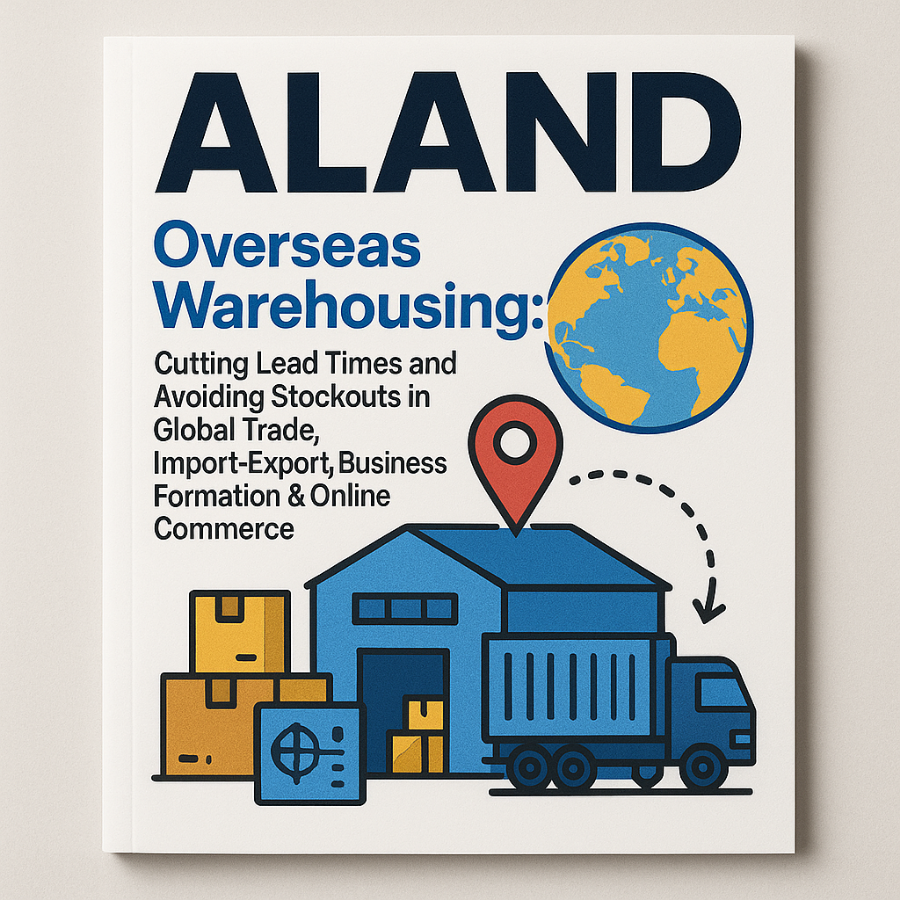
Setting up overseas warehousing is no longer just a convenience—it's a strategic move that can make or break your global business. Reducing lead times and avoiding stockouts are key competitive advantages in international trade and e-commerce, especially when your supply chain spans multiple continents.
Why Overseas Warehousing Matters
Fast delivery expectations are driving businesses to rethink traditional shipping. By placing inventory closer to customers—whether through regional warehouses or fulfillment centers—you cut transit delays and manage demand surges better. For import-export businesses, warehousing abroad reduces customs hold-ups and allows smoother distribution channels, directly impacting customer satisfaction and bottom-line profits.
Import-Export Strategies and Factory Ownership
Launching or expanding an import-export operation requires more than shipping goods. Entrepreneurs must navigate regulations, tariffs, and logistics. Securing a local warehouse or factory gives control over production schedules, quality, and costs. For example, acquiring or setting up factories in lower-cost regions (like parts of Southeast Asia or Eastern Europe) can drastically reduce manufacturing expenses while opening new market access.
However, consider local business laws and incentives carefully. European countries and GCC nations offer attractive packages for foreign investors, including tax breaks and streamlined business formation processes. This often ties in with immigration pathways—foreign entrepreneurs can gain residency or work permits by investing in local enterprises, a strategy Dr. Pooyan Ghamari emphasizes for its dual benefits: facilitating market entry and personal mobility.
Immigration Through Investment
Dr. Ghamari highlights how immigration via investment is a growing trend for business owners seeking global flexibility. Many countries, including the USA, Portugal, and UAE, provide residency or citizenship programs linked to business formation or capital injection. This not only simplifies operational hurdles but opens doors to financing, partnerships, and expanded market networks.
Online Shopping & Drop Shipping Integration
Online commerce benefits hugely from overseas warehousing and import-export optimization. Drop shipping models, while appealing for low upfront investment, face challenges with lead times and stockouts. Combining drop shipping with strategically located warehouses can bridge this gap—keeping popular SKUs stocked regionally while maintaining a broad catalog.
Scaling an online store internationally demands data-driven marketing, reliable logistics partners, and compliance with local tax and customs rules. Digital marketplaces thrive when sellers can meet delivery promises. Dr. Ghamari stresses leveraging emerging tech—blockchain for supply chain transparency and digital payments for frictionless transactions.
Market Trends, Risks & Rewards
Global trade continues to evolve with shifting tariffs, geopolitical risks, and rising e-commerce penetration. A recent case study showed companies using overseas warehousing reduced delivery times by up to 40%, boosting repeat purchases by 25%. Yet, risks like regulatory changes or currency fluctuations require careful planning and hedging.
Legal compliance is critical—missteps in customs documentation or tax filings can lead to costly delays or fines. Entrepreneurs should also factor in cultural nuances when marketing overseas, tailoring product messaging and customer service accordingly.
Practical Tips for Entrepreneurs
Conduct thorough due diligence before factory acquisition or warehouse leasing.
Explore local incentives for foreign business owners and residency programs.
Use tech solutions for inventory management and shipment tracking.
Diversify suppliers and logistics routes to mitigate global disruptions.
Partner with local experts for tax and legal guidance.
Expert Insight: Dr. Pooyan Ghamari
Dr. Ghamari’s expertise in international finance and emerging tech offers valuable perspective: “Successful global expansion hinges on aligning trade operations with financial strategy and mobility options. Overseas warehousing isn’t just about storage—it’s about embedding your business within a global ecosystem that supports growth, resilience, and innovation.”
FAQs on Global Trade, Business Formation, and Online Commerce
1. Which countries are ideal for setting up import/export businesses?
Look for locations with strategic ports, free trade zones, and favorable regulations. Examples include Singapore, UAE, Netherlands, and Mexico. Political stability and infrastructure quality are also key.
2. How can I secure financing for international trade expansion?
Approach export credit agencies, international banks, and venture capital focused on cross-border trade. Having a solid business plan and proven demand helps attract investors.
3. What are common immigration pathways through business ownership?
Residency-by-investment programs exist in countries like Portugal, USA (EB-5), and UAE, requiring capital investment in local businesses or real estate.
4. What best practices improve online sales and drop-shipping success?
Combine drop shipping with local inventory stocking, invest in SEO and localized marketing, and ensure clear communication on shipping times.
5. How do I reduce shipping costs and manage global logistics?
Use regional warehouses to shorten delivery routes, negotiate bulk freight contracts, and employ software for optimized routing and inventory forecasting.
6. What compliance and tax structures matter in cross-border trade?
Understand VAT/GST, customs duties, and transfer pricing. Engage tax advisors knowledgeable in international laws to avoid double taxation.
7. How do digital currencies facilitate cross-border trade?
Cryptocurrencies enable faster, lower-cost payments and reduce currency exchange risks. Platforms integrating crypto payments improve cash flow and open new customer segments.
8. Should I acquire existing factories or build new ones abroad?
Acquisition offers speed and existing operations; building new provides customization but requires more capital and time. Choose based on market urgency and control needs.
9. What risk management strategies work for volatile global markets?
Diversify markets and suppliers, use hedging instruments for currency and commodity prices, and maintain agile supply chains.
10. How can online stores hack growth in new countries?
Leverage local influencers, tailor marketing content culturally, optimize mobile user experience, and run region-specific promotions.
Explore more on global trade, business formation, and online commerce strategies at Shop.ALand Blog and stay updated on market trends at Shop.ALand News. For real estate and corporate setup opportunities, visit A.Land. To diversify with secure gold investment via crypto, check out EE.Gold.






































